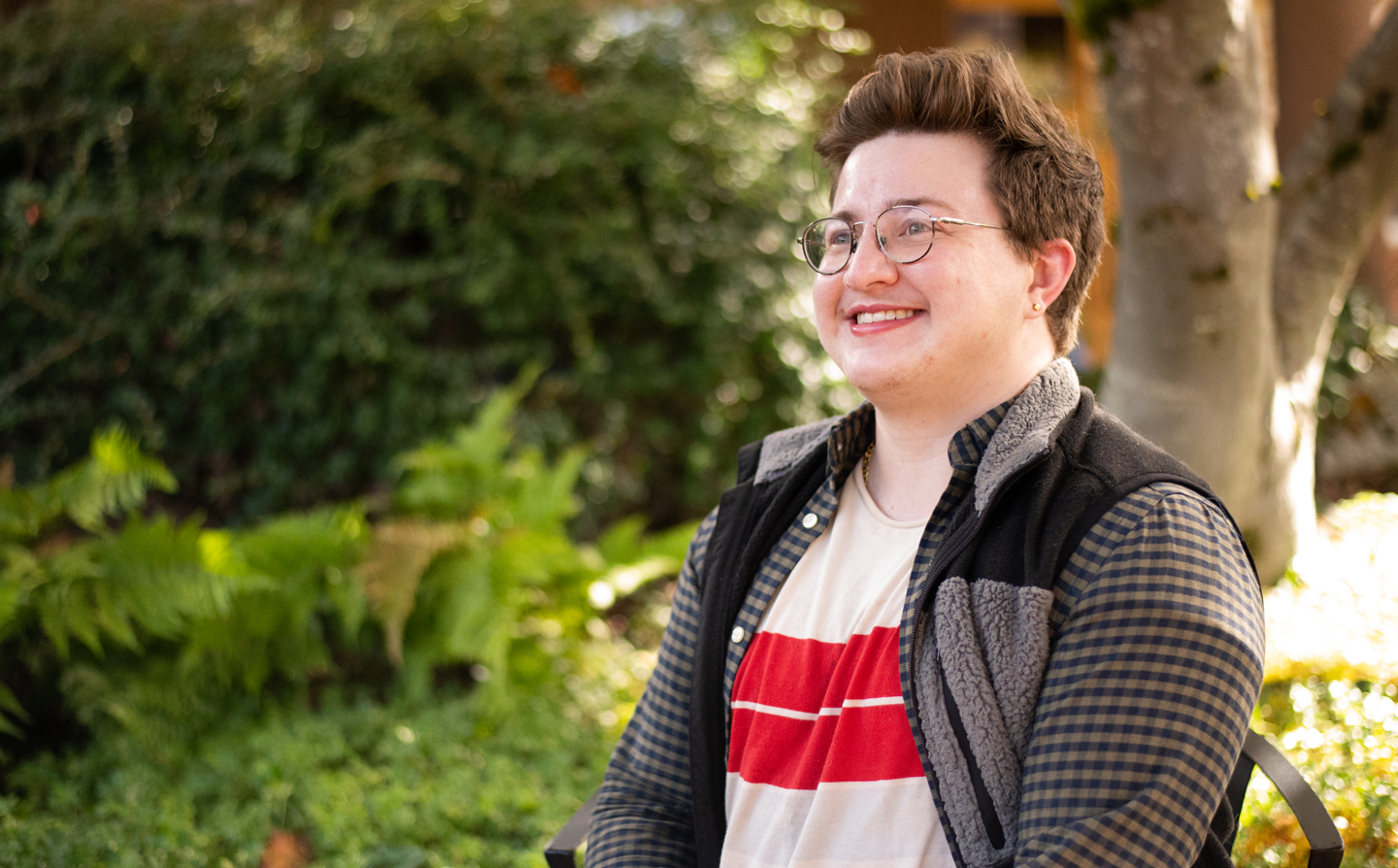With no questions about transgender identities in the U.S. Census and no other reliable demographic data on trans people, researchers are often in the dark about their lives.
“Data powers all of the things we know about the public,” said Leo Stewart (pictured above), a doctoral candidate at the University of Washington Information School. “If nobody’s measuring what’s happening for specific groups, it’s really hard to say a group has a lower life expectancy or something like that because you don’t have that data.”
Through his research, Stewart seeks to shed light on data about trans people and other marginalized groups. He recently secured a fellowship from the UW Center for Studies in Demography and Ecology (CSDE) that will support his work as he approaches the dissertation stage of the Ph.D. program.
Stewart, who is advised by iSchool Associate Professor Emma Spiro and Assistant Professor Anna Lauren Hoffmann, is interested in how identity is represented in data and what that representation means for marginalized groups, especially LGBTQ people.
Gathering better demographic data isn’t as simple as adding a box to a form, Stewart said. Even with more options, some people may not find one that fits their gender identity. And many people may be reluctant to disclose information about themselves, particularly if their identities make them vulnerable to discrimination.
The fellowship will allow Stewart to explore questions such as, “How do we reshape how we think about identity and how we think about gathering social science data?” and “How do you determine what’s important, what’s useful, what you need to know, and who is most at risk and translate that into a quantitative schema for data?”
Backed by the National Institutes of Health, the CSDE fellowship will provide Stewart with financial assistance for up to two years, along with coursework and mentorship in demography. The CSDE, which was founded more than 70 years ago, advances knowledge about population dynamics, generates data to support population science and trains future demographers.
“I come from more of a data science background,” Stewart said. “My work is hopefully going to speak to demographers and people who use demographic methods. I’ll be able to get more access to demography resources, so I can not just talk at those people, but have conversations.”
